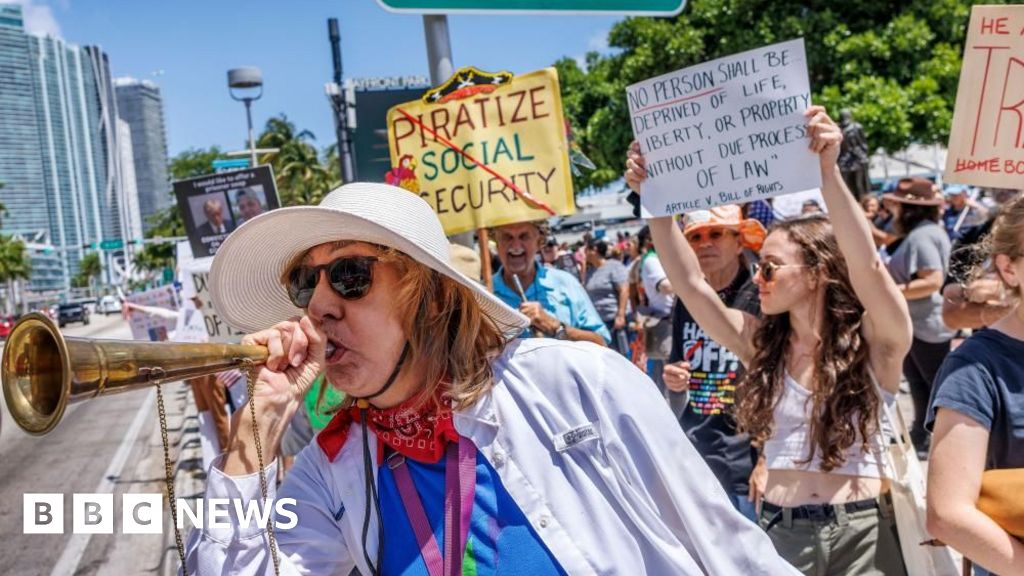ARTICLE AD BOX
Image source, Toronto Star via Getty Images
Police in Canada's capital have ramped up their presence amid warnings they plan to clear a blockade of protesters in the city centre.
The demonstrators, many of whom have been in Ottawa since late January opposing Covid restrictions, have been told to leave or risk arrest.
It comes days after the federal government invoked the never-before-used Emergencies Act.
The act imposes bans on public assembly in some areas, among other measures.
Ottawa police have said they had plans to clear the streets in the "coming days" and have erected new barriers near the protest site.
Protesters, many parked in some 400 heavy trucks and other vehicles on city streets around parliament, have remained in Ottawa in defiance of orders to leave.
On Thursday, Prime Minister Justin Trudeau defended his government's use of the emergencies law in the House of Commons, saying that invoking the act was "a last resort" necessary to end protests that he said threaten the national economy, public safety and US relations.
Opposition politicians accused Mr Trudeau of inflaming an already tense situation.
The use of the act is an "unprecedented sledgehammer", said Conservative leader Candice Bergen. "I urge all members of this House - proceed with extreme caution."
The protests began with a truck convoy heading to Ottawa to oppose a vaccine mandate for truckers crossing the US-Canada border but eventually became about a broader opposition to pandemic restrictions and Mr Trudeau's government.
The Ottawa demonstration inspired protest blockades at various border points - which have since been cleared - that affected trade between the US and Canada, raising concerns from the White House.
The temporary emergency measures allow the deployment of federal and provincial law enforcement to assist local police with the Ottawa protest, which the government has deemed illegal.
They also include fines or prison time for participants who bring children to the protest site or who assist demonstrators with supplies like fuel or food.
Banks and other financial institutions (including credit unions and crypto-currency platforms) have been ordered to stop doing business with those associated with the protests. Truckers participating in the demonstration could see corporate accounts frozen and vehicle insurance suspended.
"The consequences are real and they will bite," Deputy Prime Minister Chrystia Freeland said on Thursday.
Government officials have said there are extremist elements present among the demonstrators and that the protests have become a "rallying point for anti-government and anti-authority" groups.

 3 years ago
41
3 years ago
41








 English (US) ·
English (US) ·